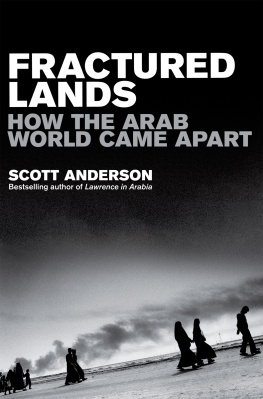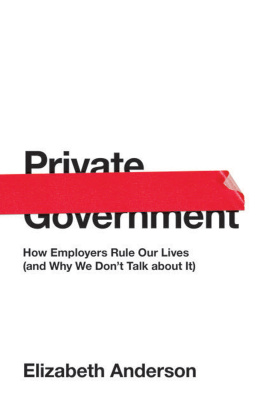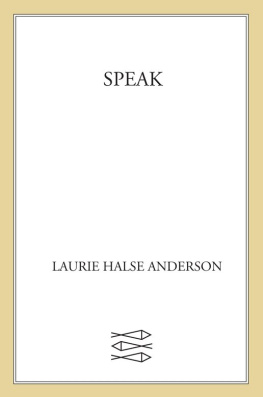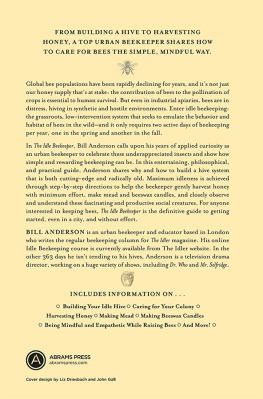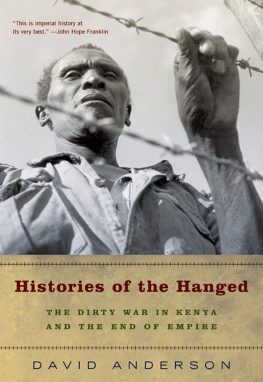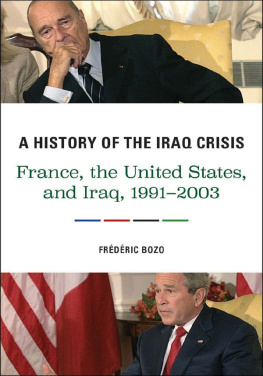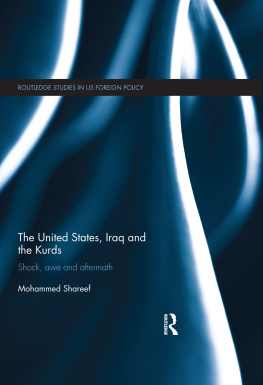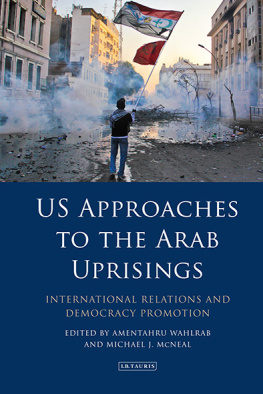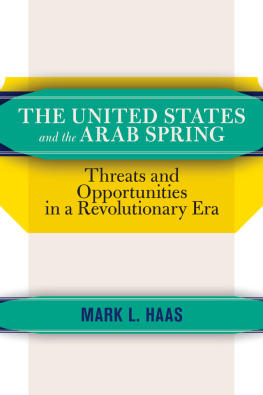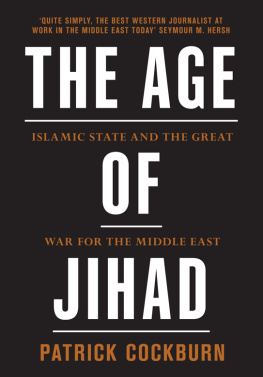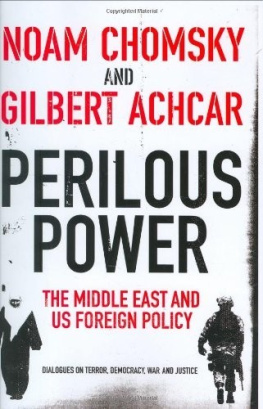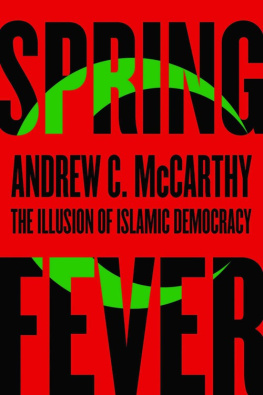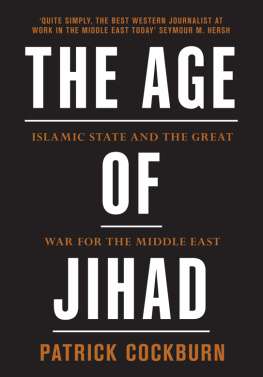FRACTURED LANDS
How the Arab World Came Apart
SCOTT ANDERSON
PICADOR
For Natasha, with unending love and gratitude
PREFACE
For our drive into northern Iraq, Dr. Azar Mirkhan changed from his Western clothes into the traditional dress of a Kurdish Peshmerga warrior: a tight-fitting, short woolen jacket over his shirt, baggy pantaloons, and a wide cummerbund. He also thought to bring along certain accessories. These included a combat knife that tucked neatly into the waist of his cummerbund, a loaded .45 automatic, and sniper binoculars. Should matters turn particularly ticklish, his M4 assault rifle lay within easy reach on the backseat, with extra magazines in the footwell. The doctor shrugged. Its a bad neighborhood.
Our destination that day in May 2015 was the place of Azars greatest sorrow, one that haunted him still. The previous year, ISIS gunmen had cut a murderous swath through northern Iraq, brushing away an Iraqi army vastly greater in size, and then turned their attention to the Kurds. Azar had divined precisely where the ISIS killers were about to strike next, knew that tens of thousands of civilians stood helpless in their path, but had been unable to get anyone to heed his warnings. In desperation, he had loaded up his car with guns and raced to the scene, only to come to a spot in the road where he saw he was just hours too late. It was obvious, Azar said, so obvious. But no one wanted to listen. On that day, we were returning to the place where the fabled Kurdish warriors of northern Iraq had been outmaneuvered and put to flight, where Dr. Azar Mirkhan had failed to avert a colossal tragedyand where, for many more months to come, he would continue to battle ISIS.
Azar is a practicing urologist, but even without the firepower and warrior getup, the forty-one-year-old would exude the aura of a hunter. He walks with a curious loping gait that produces little sound, and in conversation has a tendency to tuck in his chin and stare from beneath heavy-lidded eyes, rather as if he were sighting down a gun. With his prominent nose and jet-black pompadour, he bears a passing resemblance to a young Johnny Cash.
The weaponry also complemented the doctors personal philosophy, as expressed in a scene from one of his favorite movies, The Good, the Bad, and the Ugly, when a bathing Eli Wallach is caught off guard by a man seeking to kill him. Rather than immediately shoot Wallach, the would-be assassin goes into a triumphant soliloquy, allowing Wallach to kill him first.
When you have to shoot, shoot; dont talk, Azar quoted from the movie. That is us Kurds now. This is not the time to talk, but to shoot.
Azar is one of six people whose lives are chronicled in these pages. The six are from different regions, different cities, different tribes, different families, but they share, along with millions of other people in and from the Middle East, an experience of profound unraveling. Their lives have been forever altered by upheavals that began in 2003 with the American invasion of Iraq, and then accelerated with the series of revolutions and insurrections that have collectively become known in the West as the Arab Spring. They continue today with the depredations of ISIS, with terrorist attacks, and with failing states.
For each of these six people, the upheavals were crystallized by a specific, singular event. For Azar Mirkhan, it came on the road to Sinjar, when he saw that his worst fears had come true. For Laila Soueif in Egypt, it came when a young man separated from a sprinting mass of protesters to embrace her, and she thought she knew the revolution would succeed. For Majdi el-Mangoush in Libya, it came as he walked across a deadly no-mans-land and, overwhelmed by a sudden euphoria, felt free for the first time in his life. For Khulood al-Zaidi in Iraq, it came when, with just a few menacing words from a former friend, she finally understood that everything she had worked for was gone. For Majd Ibrahim in Syria, it came when, watching an interrogator search his cell phone for the identity of his controller, he knew his own execution was drawing nearer by the moment. For Wakaz Hassan in Iraq, a young man with no apparent interest in politics or religion, it came on the day ISIS gunmen showed up in his village and offered him a choice.
As disparate as these moments were, for each of these six people they represented a crossing-over, passage to a place from which there will never be a return. Such changes, of coursemultiplied by millions of livesare also transforming their homelands, the greater Middle East, and, by inevitable extension, the entire world.
But for all the abruptness with which these changes occurred, they didnt come completely without warning. History is always a result of seemingly random currents and incidents, the significance of which can be determinedor, more often, disputedonly in hindsight. In trying to parse out what has happened in the Middle East, one can point to some clues that are very recent, others that are centuries old.
While absently fiddling with his homemade fly whiskseveral sprigs of dried rosemary held together with a piece of aluminum foilthe sixty-year-old man in the brown-tinted sunglasses gazed meditatively up at the shadowing palm fronds.
The history of mankind is not fixed, he muttered after a time, and it does not go at one pace. Sometimes it moves at a steady pace, and sometimes it is very fast. It is very flexible all the time. He set the fly whisk on the cheap plastic patio table and turned in my direction. The past stage was the era of nationalismof the identity of one nationand now, suddenly, that has changed. It is the era of globalization, and there are many new factors which are mapping out the world.
On the topic of changing times, the man in the sunglasses could speak with a certain authority. He was Muammar el-Qaddafi, the dictator of Libya, and by the time I met with him in October 2002, he had successfully navigated the shifting geopolitical shoals of the region to remain in power for thirty-three years. That agility also helped explain my presence at the Bab al-Azizia barracks in Tripoli. By late 2002, the drumbeat for war against Saddam Hussein in Iraq was reaching a crescendo in Washington, and there was talk in President Bushs inner circle that, once the Iraqi despot was dispensed with, the troublesome Libyan would be next. To forestall that, Qaddafi had recently taken a number of steps to bring himself in from the cold, and these included a fledgling public relations push. That autumn, the famously reclusive dictator granted some of his first foreign media interviews in over a decade.
But if by his actions Qaddafi exhibited some nervousness about his relations with the Bush administration, he displayed none at all when it came to his standing with the Libyan people. After over three decades in power, he had become such an omnipresent figure in the lives of his countrymen that they rarely even referred to him by name anymore. He was simply the Leader. One measure of his confidence showed when, after I asked how he wished to be remembered, he chose to have some fun with the answer, turning it into a joke both self-aware and cynical. I would hope that people would feel that I havent been selfish, he began, that I have even forsaken myself in order to please and to help others. I do hope people would say that. He leaned close and gave a low chuckle. And I do hope that I have actually been like this in reality.
The irony, of course, is that the Americans didnt come for Qaddafiat least not then. Instead, the Leader would remain on his perch in Tripoli for another decade, only to be done in by a danger he didnt foresee: a revolt by his own people. In the series of popular insurrections and revolutions that began sweeping the Middle East in the first days of 2011, Muammar el-Qaddafi was destined to be one of its most famousand most gruesomely dispatchedvictims, murdered by a lynch mob on the shoulder of a Libyan highway.

